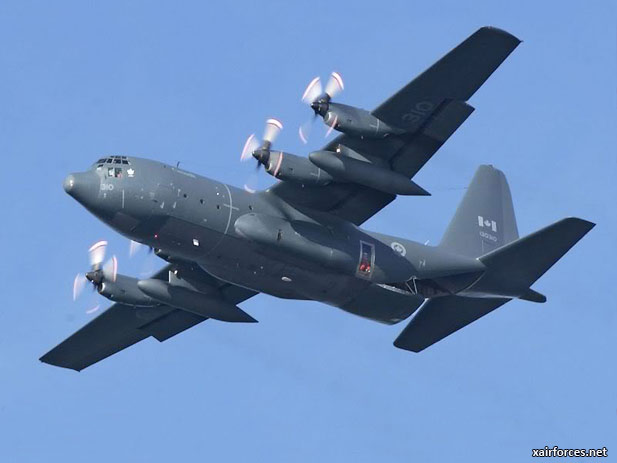
Canadian Improvements to search and rescue pledged after auditor complaints

Days after the auditor general's sharp warning about Canada's search-and-rescue capability, the Harper government announced largely symbolic changes but promised more substantive reform later.
Rescue bases will have more flexibility to adjust their hours of operation to better match incident times, and the government will spend up to $16.2 million in improvements to satellite search systems, said Defence Minister Peter MacKay.
The air force could improve its response times by slightly adjusting hours of operation, auditor general Michael Ferguson said in his spring report this week.
Currently, the military promises to scramble aircraft within 30 minutes between 8 a.m. and 4 p.m., Monday to Friday, and within two hours outside of that window.
Instead of instituting a wholesale revision, MacKay said he's "encouraging" local commanders to adjust their hours to reflect seasonal events, such as the opening of fishing season — something the auditor says is already taking place informally.
In fact, the national search-and-rescue manual already gives commanders that authority, "to realign SAR standby periods" so that they coincide with periods of greatest search-and-rescue, particularly during the summer months.
The new satellite project, known as the medium earth orbit search-and-rescue system, is still on the drawing board and has not developed a prototype, associate defence minister Kerry-Lynne Findlay acknowledged.
Findlay and MacKay couldn't say when the new eyes in the sky would be available, but said the project is expected to cut rescue-beacon location time to five minutes from the current one hour.
MacKay also promised to review the whole system every four years to identify changing needs.
"Let's not forget for context, the auditor general did say the existing provision of search and rescue is adequate. Adequate is not good enough; we need excellent," MacKay said.
"That will require further investments. That will require the improvements we have announced today. It will require investments in equipment."
MacKay — who said the announcement was in the works long before the auditor general's report — didn't address Ferguson's key complaint that the air force is strapped for pilots and crews and needs new aircraft.
Findlay said the procurement of new aircraft, started in 2002, is on track with a call for tenders by the end of this year.
"These are sophisticated, modern pieces of equipment. You can't get them at Canadian Tire," MacKay said.
"There is sometimes a very long and protracted procurement process. Anybody who thinks I have not been pushing to get fixed wing search-and-rescue aircraft since I became minister in 2007 hasn't been paying attention."
The government also plans to set up a website to register rescue beacons and ordered the air force to report the status of each of their aircraft to rescue centres daily, in order for co-ordinators to have a better real-time list of what's available.
The government was eager to showcase $2 million in infrastructure upgrades and renovations to the Joint Rescue Co-ordination Centre in Halifax.
The auditor general warned that the case management system, which that centre and two others across the country rely on, is near the breaking point and has crashed in the past.
Rear Admiral Dave Gardam, rescue commander for the Atlantic region, agreed the system needed to replaced, but in the meantime rescue officials make do.
"If the ... system goes down, we can still do it by phone," Gardam said in Halifax.
"We can still do it by all the integrated systems in the Joint Rescue Co-ordination Centre. If it went down right now, we'd be managing every SAR case without an issue."
Gardam said the centre could use more staff.
Ferguson's report also recommended the federal government invest more in rescue prevention and training, noting the $8-million annual budget has not increased in 20 years.
The national association representing ground search-and-rescue volunteers says it has been struggling to stay afloat, subsisting on revolving grants, rather than sustained funding.
In a later interview, MacKay said whether the organization gets the $400,000 annually that it says it needs will depend on the results of the first review.
Ground search-and-rescue is a provincial responsibility and the minister said the Conservative government is loath to infringe, he said.
Outside the legislature in St. John's, N.L., Newfoundland Premier Kathy Dunderdale said the federal changes don't go far enough, and that her faith in the search-and-rescue system has not been restored.
"It's not good enough," Dunderdale said.
"You know, the auditor general has identified very clearly a number of areas where we could have immediate action and that is truly what we need. We need something around task times, we need something around scheduling," she said.
"There needs to be an immediate improvement to communications and we need a plan for replacing aging vessels and aircraft, and having enough capacity in human resources so that people have up-to-date training."
The federal Liberals described the measures announced Thursday as "hollow."
"Yet again, we have a Conservative announcement that is nothing more than window dressing," said MP Lawrence MacAulay, the party's coast guard critic.
— With files from Michael MacDonald in Halifax and Sue Bailey in St. John's, N.L.
Source: Murray Brewster, Ottawa, The Canadian Press News – 2 May 2013
Photo: The Royal Canadian Air Force CC-130 Hercules Search-and-Rescue Aircraft from Winnipeg prepares to drop bundles during a rescue training event in 2004 (Photo by Courtesy DND Combat Camera/ WO Peter Veldhuizen)
(2.05.2013)
|